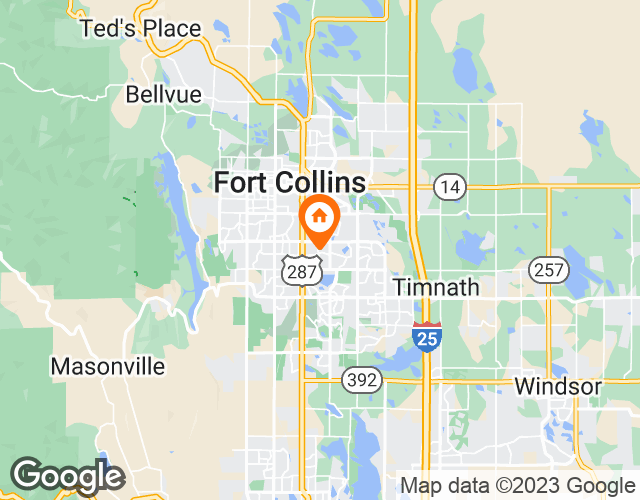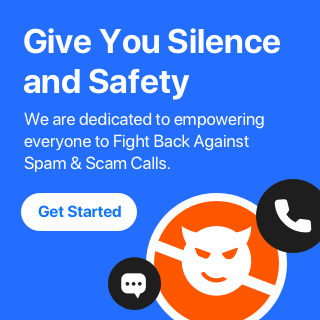(970) 345-3780
is a Business Scam Robocall
This number also appears as 970-345-3780, 9703453780, (970) 345-3780
- Risk Level:very-high
- Carrier:CenturyLink
- Location:Akron, Colorado

- Line Type:Landline
- Recording:
- Transpript:Hi, James. That's good. Well, I was hoping you could help me for a moment. Okay, well, this call is about your property in St. George. Walk southwest. Are you still the owner? Hello? Hello?

About Akron
Akron-Ohio is a city located in the northeast of Ohio, United States. It is located in the Great Lakes region and is surrounded by hills and mountains. The area code for Akron-Ohio is 330 and the zip code varies depending on location. Unfortunately, Akron-Ohio has been a victim of numerous fraudulent calls due to its large population and growing economy. Common types of fraudulent calls include phone scams related to insurance, student loans, credit cards, and utilities. To intercept these fraudulent calls, Realcall can be used which uses artificial intelligence to identify suspicious incoming calls and automatically block them.
Top 20 Spam Calls

Just last week, people got RealCall protection!





Every spam call has been blocked since I’ve installed this app. I get 10-15 robocalls daily and never get distractions while I’m working or with family. Very happy with it.
00brunette





No annoying calls!! Though it also silences all calls not in contacts. I’d like to get all calls from my local phone numbers.
pennybeanpole





I own my own aesthetics business, as well as I teach yoga. It is important for me to be able to stay in touch with my clients as well as my healthcare providers as I am chronically ill but this also leads to me having incessant phone calls that I waste time on. Bec I was literally losing my mind, and, starting to waste a lot of stress on said calls that didn\'t need to go through. If you are receiving too many Robo calls or too many spam calls. This is worth your money, especially if you own your own business.
Nacomanrandysavage





Finally sanity! Thanks! No spam calls!
WENDEE WOO





Well, so far, this is blocked all of the Robo calls and scam calls so I would definitely have to say that I am happy with this app.
josh121984
Comment
1 user reports for (970) 345-3780
This is a fake home-buying or land-buying real estate scam! This fake "we buy homes/land in your area for cash" scam is from Puta'ng Ina Ka criminals phoning from the Philippines. The Filipino scammer asks for your credit card or bank account number "so they can deposit your (fake) cash payment" for your home or land. The scammers ask for your Social Security number using a fake excuse that they need to verify your identity. This scammer often asks for you by your name to sound like a personal phone call to gain your trust, but they are randomly auto-dialing everyone. Scammers use huge phone database listings of millions of names with phone numbers and addresses to have the autodialer display the name that is currently dialed. In legitimate real estate transactions, money should flow from buyer to seller. But one common tactic of these home-buying scams is for the scammer to say that you need to first pay $300 to $2000 for "administrative" or "processing" fees. This "you need to pay processing fees" lie is also used in "you won a free vacation/cruise/lottery/sweepstakes" scams. People who are desperate to sell their homes are common victims of these scams. If you sell your home to a legitimate investor, they will not ask you to pay extra commission, processing, or administrative fees compared to selling a home with a realtor. A legitimate real estate investor writes you an offer, free of any charges that you have to pay in advance. You then have the option and the time of accepting the offer. Scammers pressure you to make a decision on the first call. Fake real estate scams offer to buy your property without looking at it in person, giving the excuse that they have already seen it on the internet. Sellers whose houses require repairs often fall victim to this "no personal visit needed" lure of selling their homes to someone without spending money on repairs. This call center also runs a massive health insurance and Medicare healthcare scam to steal your credit card number, Medicare and Social Security numbers, and personal information to commit Medicare fraud and identity theft under the pretense of saying that they will help you obtain health insurance, Medicare supplement plans, and life insurance. Another scam operated by this call center is a fake Allstate, Farmers, State Farm insurance impersonation scam. About 55% of North America scam calls come from India and 40% come from the Philippines. India scammers run hundreds of fraud, extortion, and money laundering scams every day such as posing as a fake pharmacy, fake Social Security officer saying your benefits are suspended, IRS officer collecting on fake unpaid back taxes, debt collector threatening you for fake unpaid bills, fake bank/financial/FedEx/UPS/DHL scams, pretending to offer fake health insurance, car warranty, student loan forgiveness, credit card and debt consolidation services, posing as Amazon to falsely say an unauthorized purchase was made to your credit card or your Prime membership was auto-debited from your bank, posing as Microsoft/Dell/HP/Apple to say your account has been hacked or they detected a virus on your computer, fake "we are refunding your money" or "your account has been auto-debited" scams, fake Google/Alexa listing scams, posing as electric utilities, Verizon, AT&T, or Comcast, fake solar panel and home purchase offers, fake fundraisers asking for donations, fake phone surveys, and the scammers try to steal your credit card, bank account/routing number, Social Security number, and personal information. India scammers often rotate through fake Social Security, subscription auto-renewal, pharmacy, and pre-approved loan scams on the same day. Philippines scammers run more auto/home/health/life insurance, Social Security and Medicare identity theft, and fake charity donation scams. Scammers use disposable VoIP phone numbers (e.g. MagicJack devices) or they spoof fake names and numbers on Caller ID. Anyone can use telecom software to phone with a fake CID name and number. Scammers spoof thousands of fake 8xx toll-free numbers. CID is useless with scam calls unless the scam asks you to phone them back. CID area codes are never the origin of scam calls since scams use spoofed CID numbers from across the US and Canada, numbers belonging to unsuspecting people, invalid area codes, and fake foreign country CID numbers; e.g. fake women crying "help me" emergency scams often spoof Mexico and Middle East CID numbers. Scammers often spoof the actual phone numbers of businesses such as Apple, Verizon, and banks to trick you into thinking the call is valid. How can you avoid being scammed by phone calls? NEVER trust any unsolicited caller who: sells something (most unsolicited calls are scams so your odds of saving money are very poor); asks for your Social Security number; offers a free gift or reward; threatens you with arrest/lawsuit or says you need to reply back soon (pressure tactic); asks you to access a website, download a file, wire transfer money or buy prepaid debit/gift cards; claims suspicious activity on your account; says your subscription is being refunded or auto-renewed/auto-debited; and all pre-recorded messages. Recordings are far more likely to be malicious scams and not just telemarketer spam. All unsolicited callers with foreign accents, usually Indian or Filipino, are usually scams. Filipino scammers tend to speak better English than Indian scammers. Filipinos speak English with a subtle accent having a slight trill. Scams often say that you inquired about a job, insurance, social security benefits, or that you previously contacted them or visited their website. A common India scam plays a fake Amazon recording. Amazon account updates are emailed, not robo-dialed. Many banks use automated fraud alert calls to confirm a suspicious purchase, but verify the number that the recording tells you to phone or just call the number printed on your credit card. India scammers impersonate AT&T DirecTV, Comcast, or a cable/Internet company, offering fake discounts or service upgrades. Indians impersonate the IRS and Social Security Administration. The IRS/SSA never make unsolicited calls and never threaten to arrest you; they initiate contact via postal mail. Real lawsuits are not phoned in, especially not using pre-recorded threats lacking details; legal notices are mailed/couriered. The police, FBI, DEA never phone to threaten arrest; they show up in person with a warrant. Scammers try to gain your trust by saying your name when they call, but their autodialer automatically displays your name or says your name in a recording when your number is dialed using phone databases that list millions of names and addresses. Scammers often call using an initial recording speaking English, Spanish, or Chinese that is easily generated using text-to-speech translation software to disguise the origin of their overseas phone room. Some speech synthesis software sound robotic, but others sound natural. To hide their foreign accents, some India scammers use non-Indians in their phone room. Scammers often use interactive voice response (IVR) robotic software that combines voice recognition with artificial intelligence, speaks English with American voices, and responds based on your replies. IVR calls begin with: "Hi, this is fake_name, I am a fake_job_title on a recorded line, can you hear me okay?"; or "Hi, this is fake_name, how are you doing today?"; or "Hello? (pause) Are you there?"; or "Hi, may I speak to your_name?" IVR quickly asks you a short question to elicit a yes/no reply so it hangs up if it encounters voicemail. IVR robots understand basic replies and yes/no answers. To test for IVR, ask "How is the weather over there?" since IVR cannot answer complex questions and it keeps talking if you interrupt it in mid-sentence. IVR usually transfers you to the scammer, but some scams entirely use IVR with the robot asking for your credit card or SSN. A common myth is IVR calls record you saying "yes" so scammers can authorize purchases just using your "yes" voice, but scammers need more than just a recorded "yes" from you - credit cards and SSN. Phone/email scams share two common traits: the CID name/number and the "From:" header on emails are easily faked, and the intent of scam calls is malicious just as file attachments and website links on scam emails are harmful. Scams snowball for many victims. If your personal/financial data are stolen, either by being scammed, visiting a malicious website, or by a previous data breach of a business server that stores your data, then your data gets sold by scammers on the dark web who will see you as fresh meat and prey on you even more. This is why some receive 40+ scam calls everyday while others get 0 to 2 calls per day. If you provide your personal information to a phone scammer, lured by fake 80%-discounted drugs or scared by fake IRS officers, you receive even more phone scams and identity theft can take years to repair. Most unsolicited calls are scams, often with an Indian accent. No other country is infested with pandemics of phone room sweatshops filled with criminals who belong to the lowest India caste and many are thieves and rapists who were serving jail time but released early due to prison overcrowding. Scammers often shout profanities at you. Just laugh at their abusive language. Google "Hindi swear words" and memorize some favorites, e.g. call him "Rundi Ka Bacha" (son of whore) or call her "Rundi Ki Bachi" (daughter of whore). Scammers ignore the National Do-Not-Call Registry; asking scammers to stop calling is useless. You do these scammers a favor by quickly hanging up. But you ruin their scams when you slowly drag them along on the phone call, give them fake personal and credit card data (16 random digits starting with 4 for Visa, 5 for MasterCard), ask them to speak louder and repeat what they said to waste their time and energy.
Similar Number
Media News

Amazon Scams Become the Top Source of Consumer Fraud Losses, RealCall Report Reveals

Spam Blocking Service Provider RealCall Warns of Midterm Election Scams

Spam-blocking App RealCall: How to Deal with Growing Robocall Scams

Don’t be a chop: avoid pig butchering scams

Spam blocking app RealCall warns of “pig butchering” scams

RealCall Spam Call Blocker App for iOS Review








